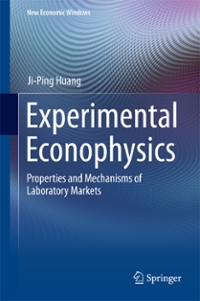Question
Imagine a town where individuals all have utility functions uw = w a , where w is their wealth. Each individual starts with wealth w.
Imagine a town where individuals all have utility functions uw = wa, where w is their wealth. Each individual starts with wealth w. Each individual's wealth is subject to taxation at a rate r, which can be between 0% and 100%. Individuals can either tell the truth about how much wealth they own or they can lie and say their wealth is zero. Obviously people would rather pay no tax so the government audits people who report zero income randomly with a probability p. If an individual gets caught lying about their wealth, they forfeit all their wealth.
a. Write the equation for the utility of an individual under each choice: paying taxes or declaring no wealth.
b. Define as the difference between these two utility functions. Write the equation for .
c. Are richer people (higher w) more or less likely to avoid paying taxes by lying?
d. Assuming that auditing people is costly, how should a government choose r and p to ensure that as many people comply as possible while gaining as much net revenue (tax revenue minus cost of audits) as possible?
Step by Step Solution
There are 3 Steps involved in it
Step: 1

Get Instant Access to Expert-Tailored Solutions
See step-by-step solutions with expert insights and AI powered tools for academic success
Step: 2

Step: 3

Ace Your Homework with AI
Get the answers you need in no time with our AI-driven, step-by-step assistance
Get Started


